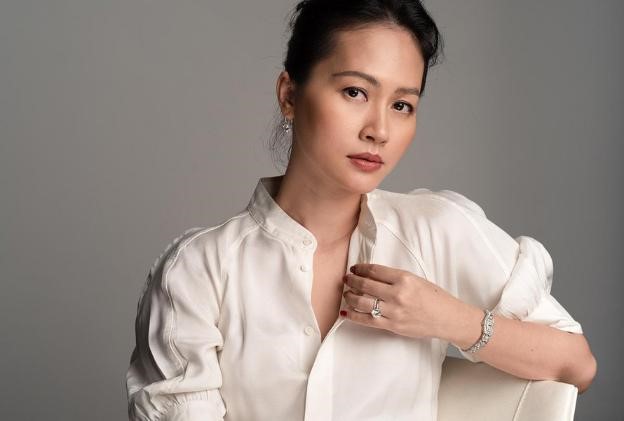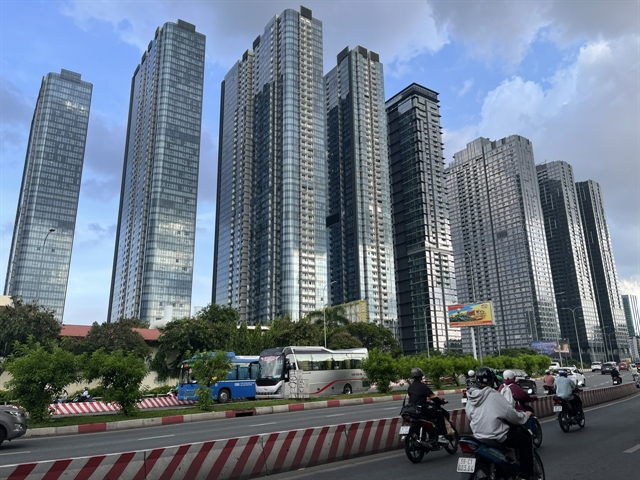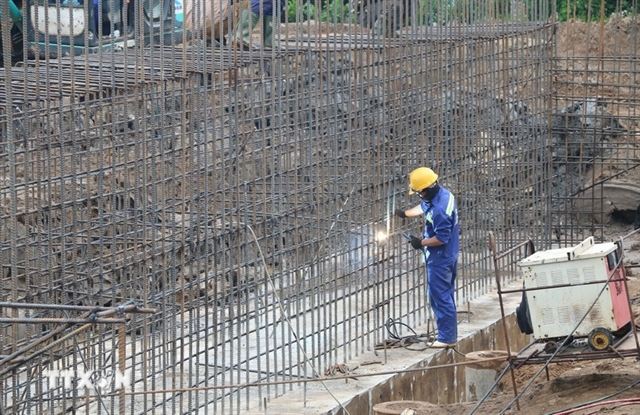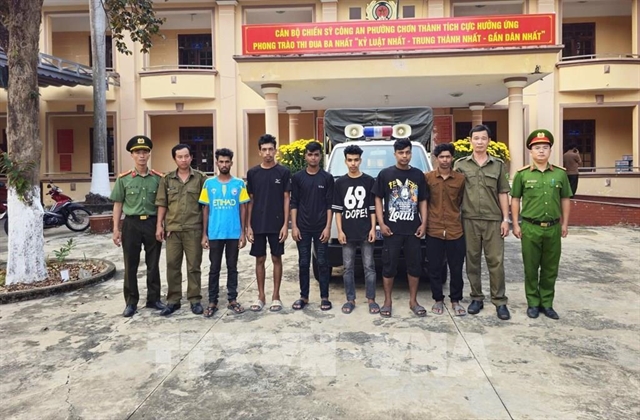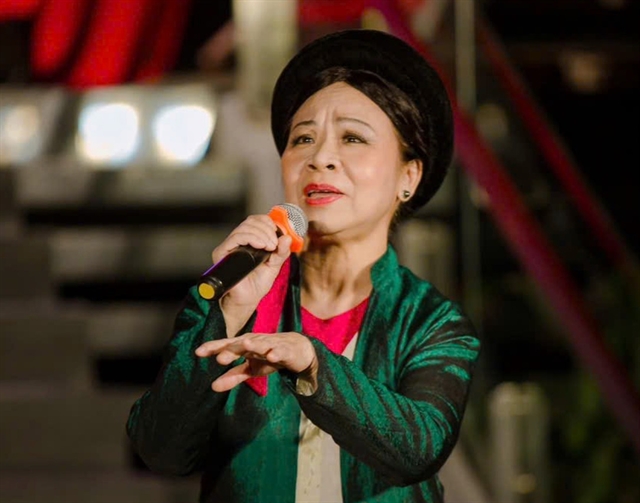 Inner Sanctum
Inner Sanctum
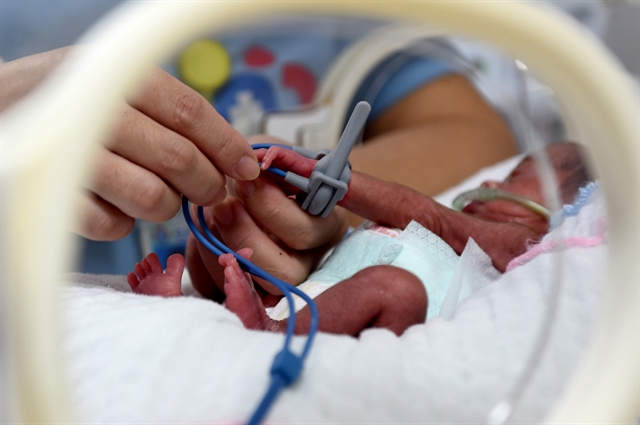
 |
| Vadim Repin plays Bruch's 'Violin Concerto' at Hồ Gươm Opera. Photo courtesy of concert organiser Nhật Minh Company. |
Russian violinist Vadim Repin was discovered by Yehudi Menuhin and, from an early age, became one of the most prominent violinists of his generation, with world tours and performances under many of the greatest conductors around the world. He visited Hà Nội for the first time with The Tartarstan Symphony Orchestra for a concert in which he played works by Bruch and Saint Saens. Repin gave Việt Nam News an exclusive interview before the concert, where he talked about the two loves of his life: violin and his wife.
Inner Sanctum: Could you recall your first encounter with the violin?
When I was very young, about three or four years old, I was asking my mother for toys, musical instruments – anything. So the violin became my favourite toy, and she decided that when I turned five, I would go to music school.
The violin came by chance. I did not have a violin before and I did not have toys. I got in simply because there was a free space in the class. All other instruments were already taken.
So it was my chance to learn the violin, and I liked it very much because of its complexity. It was not easy, like the little plastic flute or xylophone. It was much more complicated and it looked beautiful so it became my favourite toy. That's it.
Inner Sanctum: Could you talk about your first teacher?
It was a lady – a very beautiful lady – in this music school. The violin was a challenging instrument. You try many times before you can get it to work. So a lot of kids became very scared of the instrument.
But she made sure that I always had positive energy, and so I liked practising in the first year. Her name was Natalia Gatiatulina, and she passed away a few years ago, unfortunately.
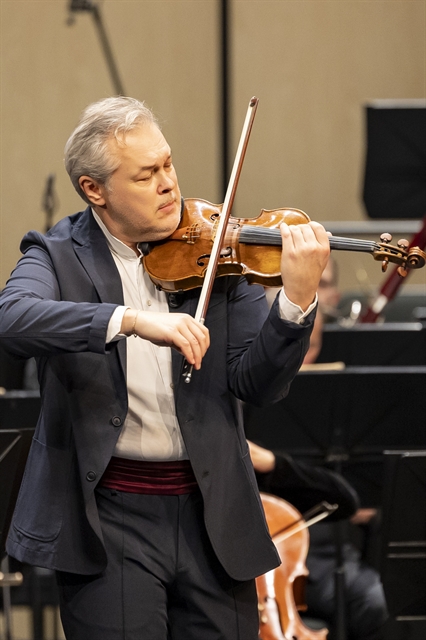 |
| Born in Novosibirsk, he now runs the Trans-Siberian Arts Festival, which enlivens the city for three weeks every March. Photo courtesy of concert organiser Nhật Minh Company. |
Inner Sanctum: Could you talk more about studying music in the former Soviet Union?
The education was free and for everyone. And it was a time in the Soviet Union when being a musician was a dream profession. It was, in a way, a window to the world, because a lot of artists were travelling abroad – something not often possible in other professions.
So the popularity of music schools was enormous. Every parent would want their child to try to become a musician and to have a beautiful and colourful life.
Nowadays, diversity and choice are much wider. In my case, my mother loved musicians and loved this profession, and it was her goal for me to become a musician.
Inner Sanctum: So you fulfilled your mother's dream?
I think so – I hope so. She's very happy. I hold a festival in my home city, Novosibirsk – the Trans-Siberian Arts Festival – and she gets to be in the middle of everything and it's very beautiful. She's very happy that I come back and create a great project in my home city.
Inner Sanctum: Who do you look up to as a musician?
Zakhar Bron was my teacher. He was a wonderful teacher as he was always curious about how the sound was produced –the technique – and it was always his passion. And at the same time, he was a wonderful player.
During lessons, he always played so beautifully that at first you wanted to copy him, but later you wanted to do something of your own. So it was my blessing to work with him at the very beginning of his career.
.jpg) |
| Repin recalls that one of his most deeply moving concerts was under the baton of Maestro Sladkovsky. Photo courtesy of concert organiser Nhật Minh Company. |
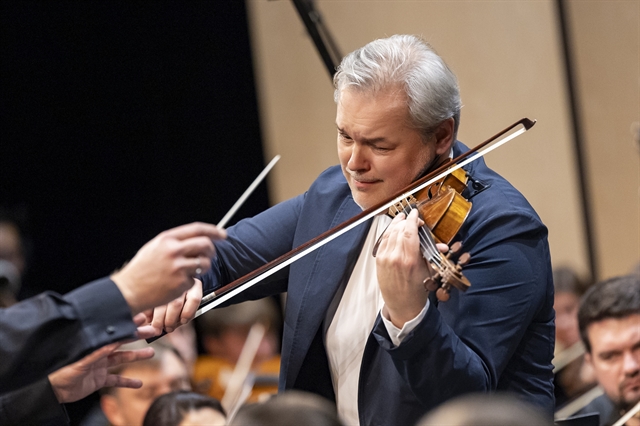 |
| Repin says that the Russian melancholy is deeply encoded in his DNA. Photo courtesy of concert organiser Nhật Minh Company |
Inner Sanctum: You won many competitions from an early age. Which one do you think opened the most doors for you?
You cannot say one. In our lives, as I said, every concert counts. So the most important is to be re-invited. For us, concert players, it's the most important thing. You treat every concert as a special occasion.
In many cases, the lifestyle of constant playing and travelling so much is like being a sportsman – you have to cut out a lot of fun things.
You must always be in your best physical shape, and your head must be mentally strong and concentrated. Over the years – the decades – I've been doing this all the time, it doesn't become easier. As we grow older, we need to have physical form. And also mentally, the more you learn, the further you want to go. Twenty years ago, I probably had lower standards for where I wanted to be than I do today. Now, in my 50s, it has become more complicated, more interesting, and also more stressful.
Inner Sanctum: You're an expert on Russian and French music. Why did you choose to play Bruch's Violin Concerto this time?
(Laughs) I think it's not correct to say 'expert' in one kind of music. In our life in classical music, we perform many different times, epochs, and composers. The further you go, the more you discover – not only by learning scores but also by meeting other colleagues and performing together.
I was blessed that along my professional way, I met musicians who lifted me – musically and mentally – so I consider it a blessing and am extremely happy I had a chance to collaborate with great artists.
Inner Sanctum: How do you like Hà Nội so far?
I only arrived late last night. On concert day, from the first hour, you prepare for the performance. I had a wonderful lunch – it was very tasty – and I look forward to meeting the public in Hà Nội.
In my life, it's rare that I come to a place I've never been, because I've been to many. This time it's very special because it's a premiere, and I'm very curious and nervous as I prepare for the concert. I'm very happy to perform with wonderful musicians today – the Tatarstan Orchestra and Maestro Sladkovsky, my dear friend.
Just a week ago, we performed together in Russia. Now we're here, and I'm very curious about the public in Hà Nội.
Inner Sanctum: Did you know anything about Vietnamese food before this trip?
I must say I know a lot about Vietnamese food when I lived in Moscow and Vienna. There are fantastic Vietnamese restaurants. I like the Asian concept of food – there's less oil, it's light, and the variety is endless, whether Vietnamese, Chinese, or Japanese. The Asian culture of eating is very interesting. I also enjoy Russian, Italian, and Spanish food. So it has to be a combination.
Inner Sanctum: On a future visit, would you consider giving masterclasses to students here?
It'd be very interesting. I do it everywhere and I enjoy it. I hope next time I'll have more time here. Tomorrow I have a rehearsal in Macao, then Dubai, Abu Dhabi, and next Moscow – so time is very short. But in general, giving masterclasses is very rewarding.
Inner Sanctum: Could you share some of your most moving performances?
We perform today with Maestro Sladkovsky. We once played Shostakovich's Violin Concerto in Moscow just one day after his mother passed away. Of course, it was a very tragic piece. It was unforgettable – beyond the musical interpretation we prepared. I consider it one of my most moving concerts, and it happened with Alexander (Sladkovsky), who's conducting today.
There are many that will stay in my memory. I remember when I played with Menuhin in the Musicverein in Vienna – the Paganini Concerto. He started applauding after the first movement, which in Vienna is unheard of. That was such a shock for me.
Inner Sanctum: When you perform outside your country, do you still feel the Russian melancholy, or is it always within you?
It's part of Russian culture. Melancholy – just listen to Tchaikovsky or read Russian writers. It’s extremely melancholic and expressive. Everything is sometimes exaggerated in both ways, so I think it’s part of the character – part of the DNA.
It's funny – I never lived in Moscow before the wonderful love story with Svetlana, my wife, began. It was one of the happiest days, fifteen years ago. For me, it wasn't important which city I lived in, but it was important for her because she was then performing at the Bolshoi Theatre, and for her, Moscow was the most important city.
For me, Moscow was like any other capital city, because I never lived or studied there. Now, fifteen years later, it's one of the greatest cities in the world – like its own planet. We’re both based in Moscow now.
Inner Sanctum: Is there a saturation point in your career as a professional artist?
One of the happiest months in my life as a person was during the pandemic lockdowns. I think it's very common that when you're performing for so many years, you need to take a sabbatical – maybe for half a year, or one year. I'd been thinking about it for many years.
But then I'd imagine having to tell a hundred promoters, managers, orchestras, and concert halls that I wouldn't come. Then came lockdown, and I knew I had to make the most of it. Despite the catastrophic things that came with the pandemic, for me it was rejuvenating and recharging time because I learned so many new pieces.
There were no concerts, so for the first two weeks I thought I would forget about the violin – but I got the bug very quickly. For the public, I must bring new pieces, and I continue to learn new things. It pays off – when I go to festivals, I can play a lot of new music, which is wonderful. VNS

